Fragment of arch representing three of the Satpamatrika
India
15th century
Fragment of arch (torana) decorated with three of the seven Saptamatrika (mother goddesses). At the center of the composition is Vaishnavi, adorned with four arms and holding different attributes (vase, disc, sword, conch). She is represented seated under a tree, in a temple-shaped niche, the latter adorned at its top with the amalaka (ribbed disc) and enhanced with the kalasam (bulb-shaped fleuron). She takes her place on a semi-circular base, legs in lalitasana position (attitude of relaxation) and dressed in a simple dhoti. The opulent chest, barred with the Brahmanical cord, a heavy necklace adorning the upper chest, the head topped with a high tiara (kirita mukuta), the ears adorned with heavy pendants. On each side of the deity are two columns in the middle of which stand two apsaras standing, bare chests, also dressed in a simple dothi and adorned with bracelets on their arms and wrists. In the upper part of the arc, two other Saptamatrika are represented sitting on a large lotus flower also in lalitasana position, both with four arms, although with a variation for their attributes. Thus for the first of them, Mahesvari, we find the mace and the tambourine and for its sister Indrani in the upper register, one of the hands in the position of absence of fear (abhaya mudra).
The Saptamatrika are a group of seven mother goddesses, each of whom is the shakti, or female counterpart, of a god. The seven goddesses are always represented together. The order of the seven mother goddesses generally begins with Brahmi symbolizing the very essence, creation. Vaishnavi, like Vishnu, provides the created world with symmetry, beauty and order. The most important meaning of the symbolism of the Saptamatrika is the implication of cyclical universal time and its cessation. In classical statuary, Vaishnavi occupies the central position flanked by three goddesses on either side.
Grey stone
Visible accidents
25 x 27 cm exluding stand
Private collection
Contact us: culturesetcivilisations@orange.fr






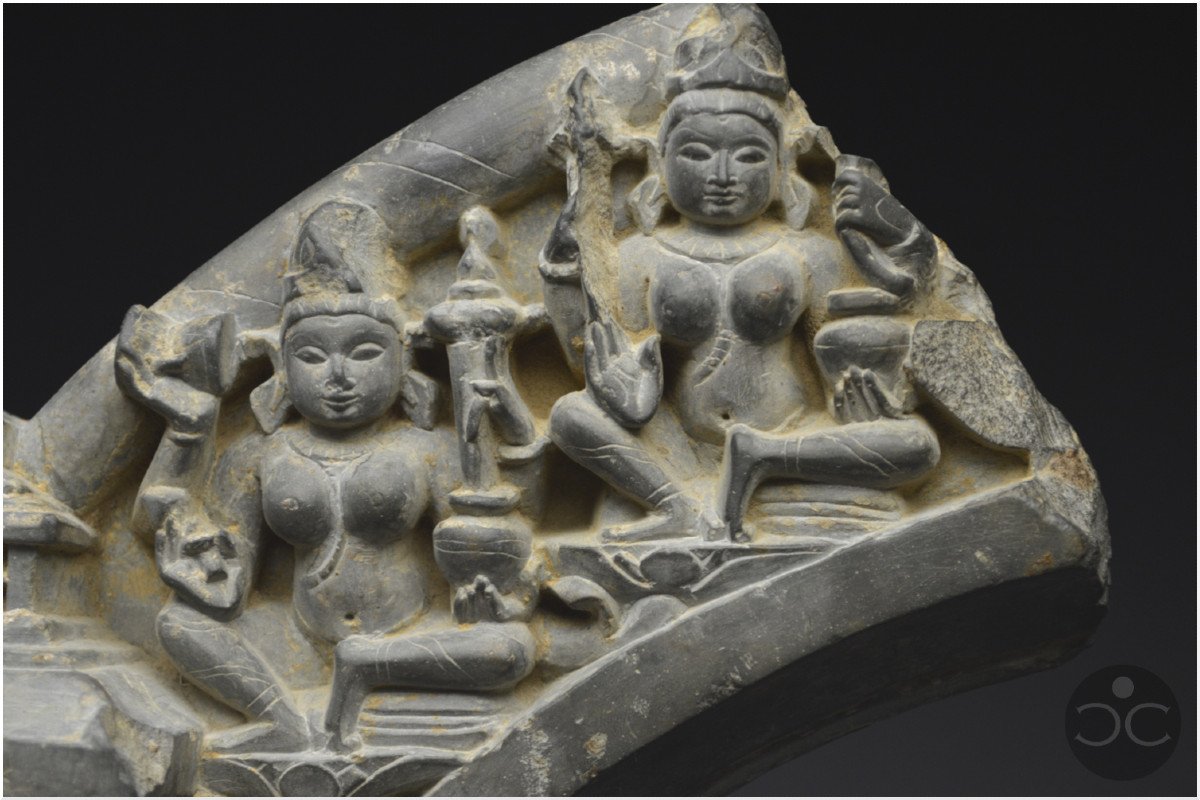


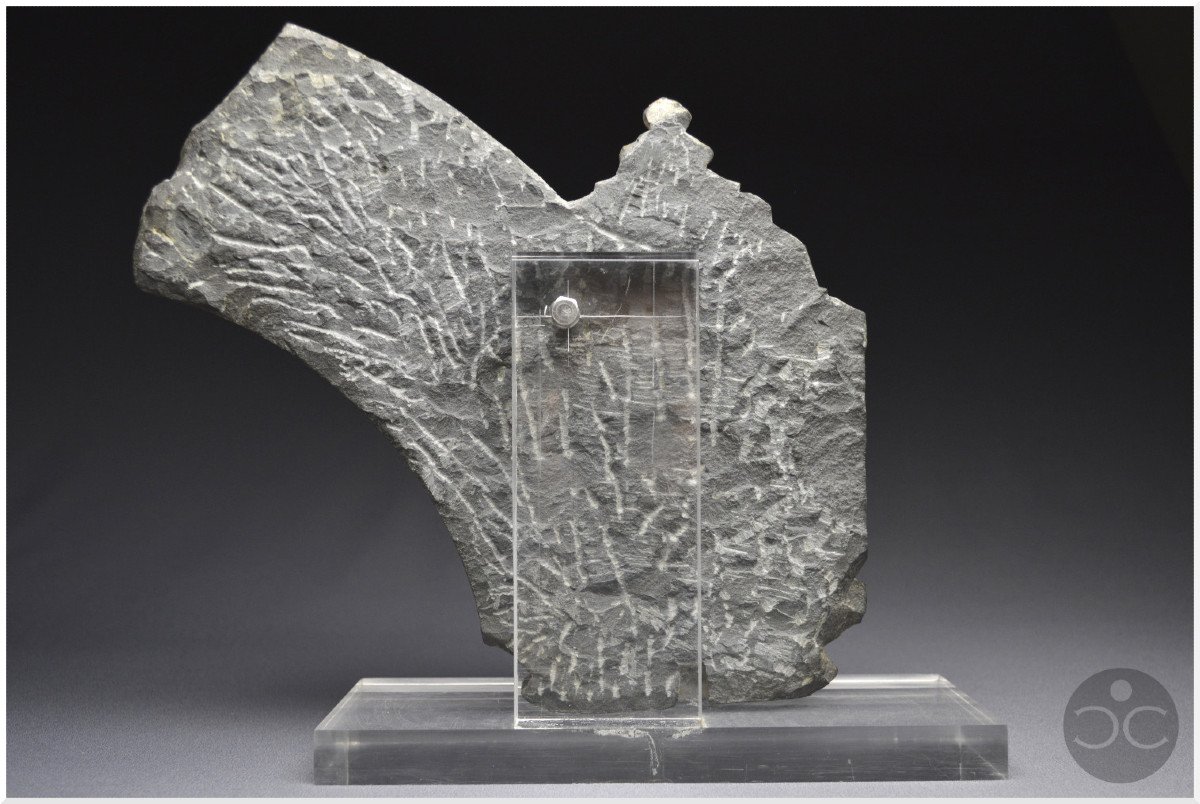
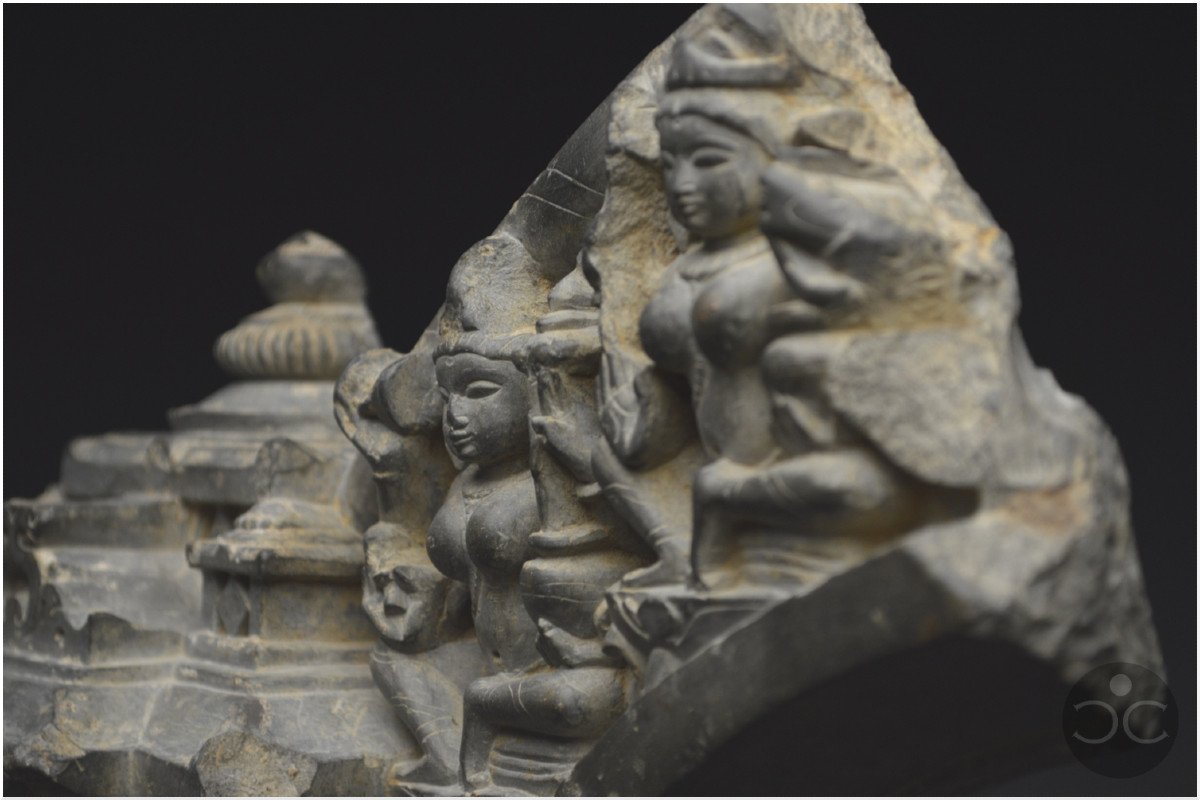
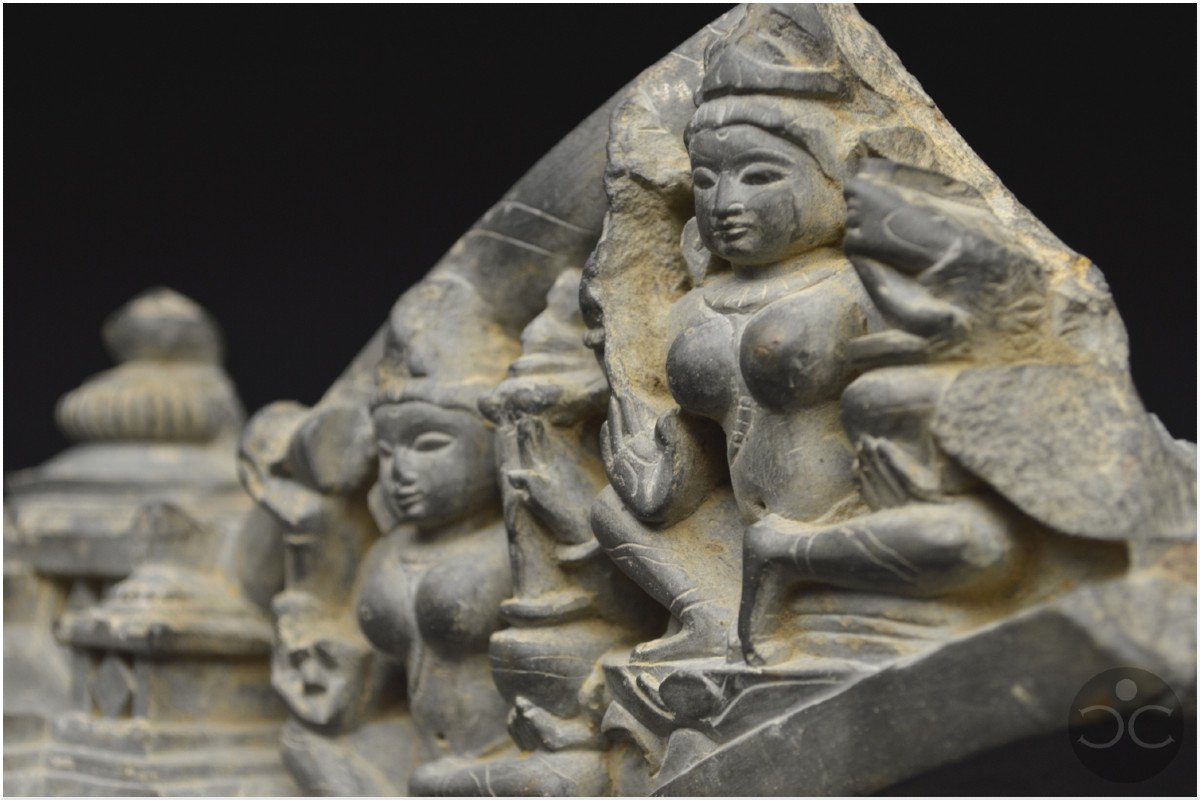
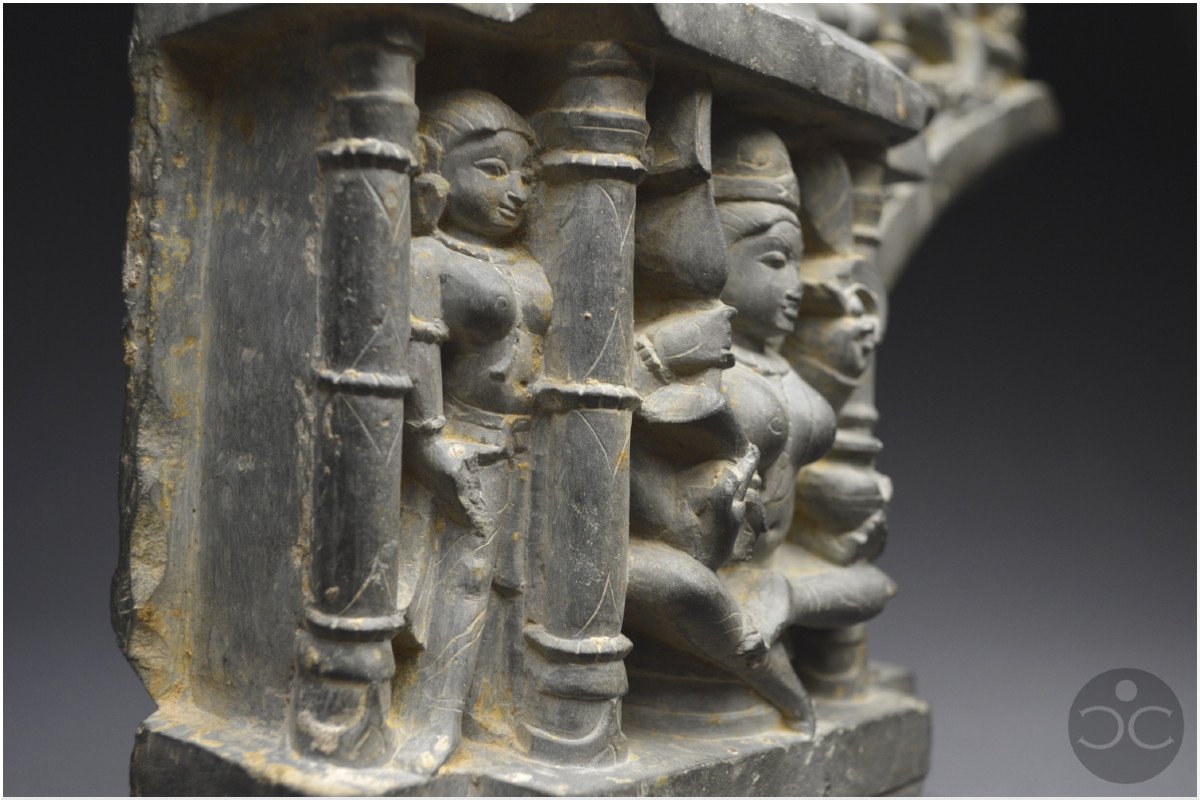



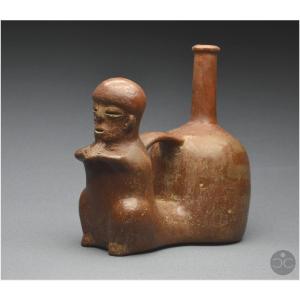
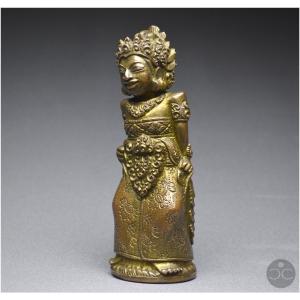
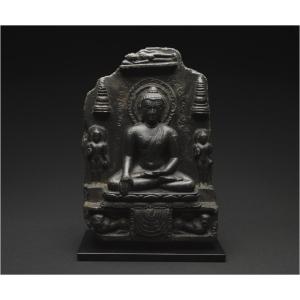
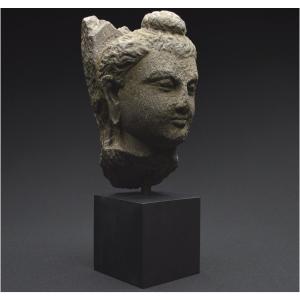




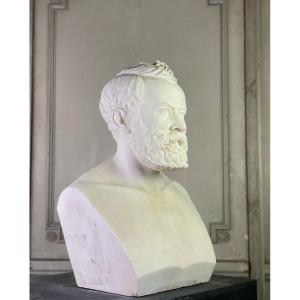
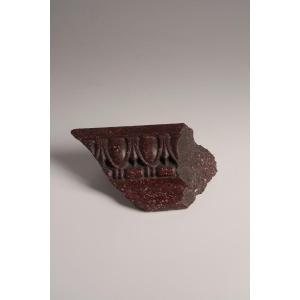




 Le Magazine de PROANTIC
Le Magazine de PROANTIC TRÉSORS Magazine
TRÉSORS Magazine Rivista Artiquariato
Rivista Artiquariato
